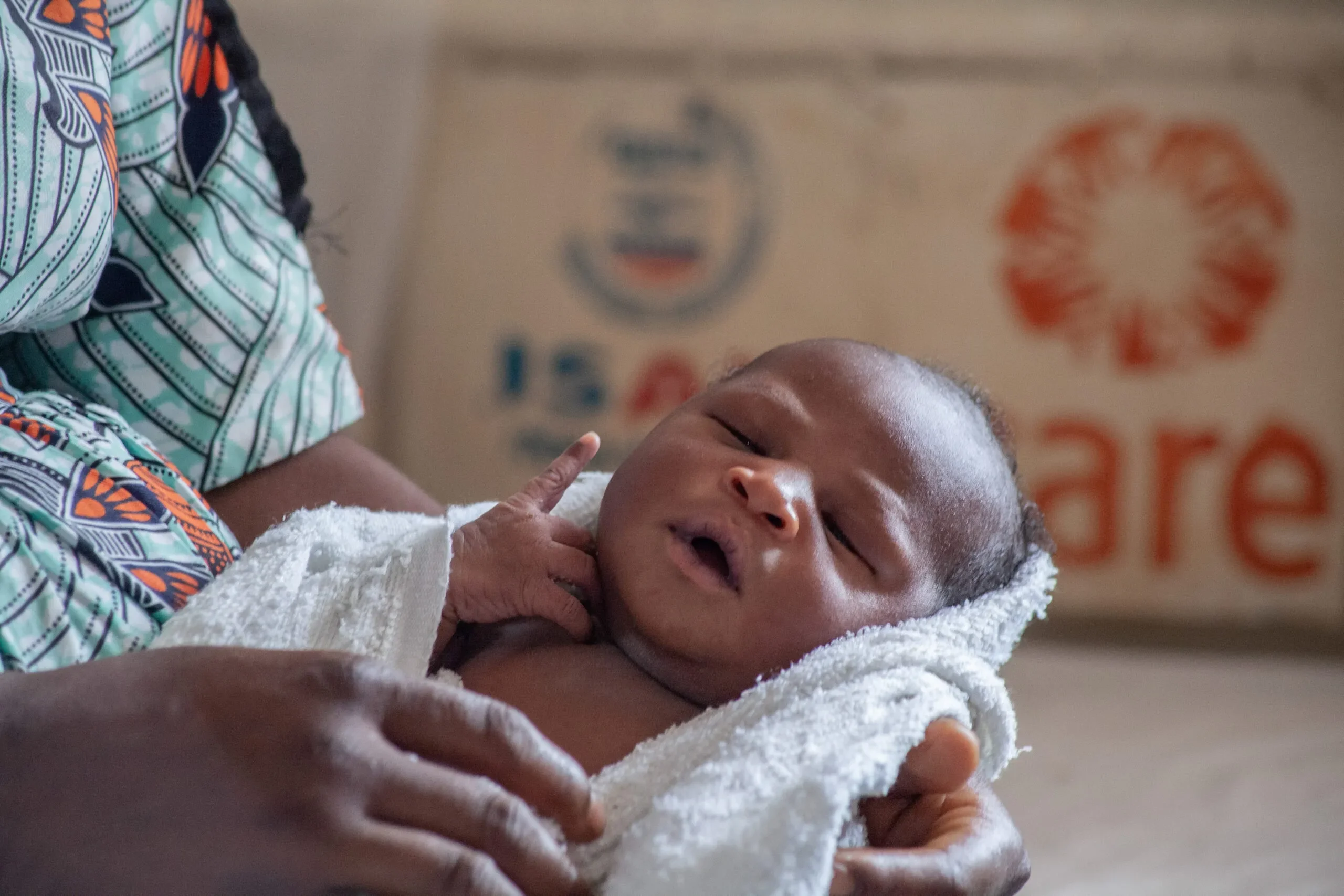“Eastern DRC has become one of the most dangerous places in the world for women and children.”
CARE, GOMA 14th November 2023 – CARE raises the alarm at the deteriorating and deplorable healthcare situation in the Democratic Republic of Congo (DRC). While more than 6.9 million people in DRC are currently displaced – and more fleeing the ongoing violence — the health sector in the country continues to crumble. Multiple conflicts across the DRC, have impeded access to healthcare for more than 8.9 million people, especially in remote and conflict-ridden areas, leading to limited access to essential and life-saving medical services. The impact of this worsening reality has been particularly acute for women, who comprise 50.6%, and children 40.9% of those in need of medical aid.
“Eastern DRC has become one of the most dangerous places in the world for women and children. Maternal and child health remains a critical issue in the DRC. Access to proper maternal healthcare services, including skilled birth attendants and necessary facilities, is still a challenge in many regions, leading to high maternal and infant mortality rates. As primary caregivers, women are more susceptible to contracting diseases and fall ill when taking care of family members” said Sidibe Kadidia, CARE International DRC Country Director.
Having faced numerous deadly epidemics including 15 Ebola outbreaks, malaria, cholera, bubonic plague, yellow fever, and measles, millions of lives have been lost and many more affected. The health infrastructure in the DRC is inadequate, lacking proper equipment and struggling to sufficiently deliver essential primary healthcare services, prevention and treatment of communicable diseases, and reproductive health services. With a high prevalence of sexual violence in the country and the stigma associated with it, many women continue to suffer in silence.
CARE Staff are witnessing women facing sexual violence not only in the camps but also at home. Reports indicate that in DRC 52% of women will face sexual violence in their lifetime and 39% of girls will be married before reaching 18 years. In Goma alone, over 70 affected women are attended to daily at clinics, and since the beginning of the year over 35,000 cases have been reported. Due to the stigma associated with sexual assault, many cases go unreported. The need for holistic care such as specialized medical treatment especially for extreme gynecological injuries is lacking. The lack of functional centers or referral facilities doubles the tragedy for survivors who are already dealing with psychosocial trauma.
“A concerted effort by all is needed to support the distressed communities. On one hand, international donors and supporters need to bolster the Humanitarian Response plan which at present is short 63.5% of what is needed. On the other hand, there needs to be a cessation of hostilities in order to adequately deliver amongst other services, health and nutrition support to those who need it. The opportunity to save lives is now. Let us not wait until it is too late to support those in need,” said Sidibe Kadidia.
For media enquiries, please contact:
David Mutua, CARE East Central, & Southern Africa Regional Communications Advisor: via: david.mutua@care.org
Anisa Husain, CARE US Press Officer via: Anisa.Husain@care.org
Notes to Editors
- CARE in DRC funded by USAID together with local partners, Comité pour le Développement et (CODEVAH) and Le Programme de Promotion de Soins de Santé Primaires (PPSSP) implement the Multisectoral Emergency Response for Conflict-Affected and IDP Households across Eastern DRC (MERCI).
- The project has reached over 265,549 individuals, including 77,455 IDPs through the project
- The project supports primary health facilities operated by the DRC Ministry of Health in North Kivu and South Kivu Provinces.
- The Project:
- provides essential care and support to survivors of violence and those who are at risk of violence including supportive counseling, emergency contraception, post-exposure prophylaxis (PEP) kits to prevent HIV transmission, antibiotics for STIs and prevention of hepatitis B),
- The project has rehabilitated confidential/safe spaces and community-based dialogues on sexual violence response, prevention, and available services from Health Facilities.
- Case management identifies individual needs and referrals to other service providers who can provide specialized services to survivors, for example, in the mental health, medical, and legal sectors.

